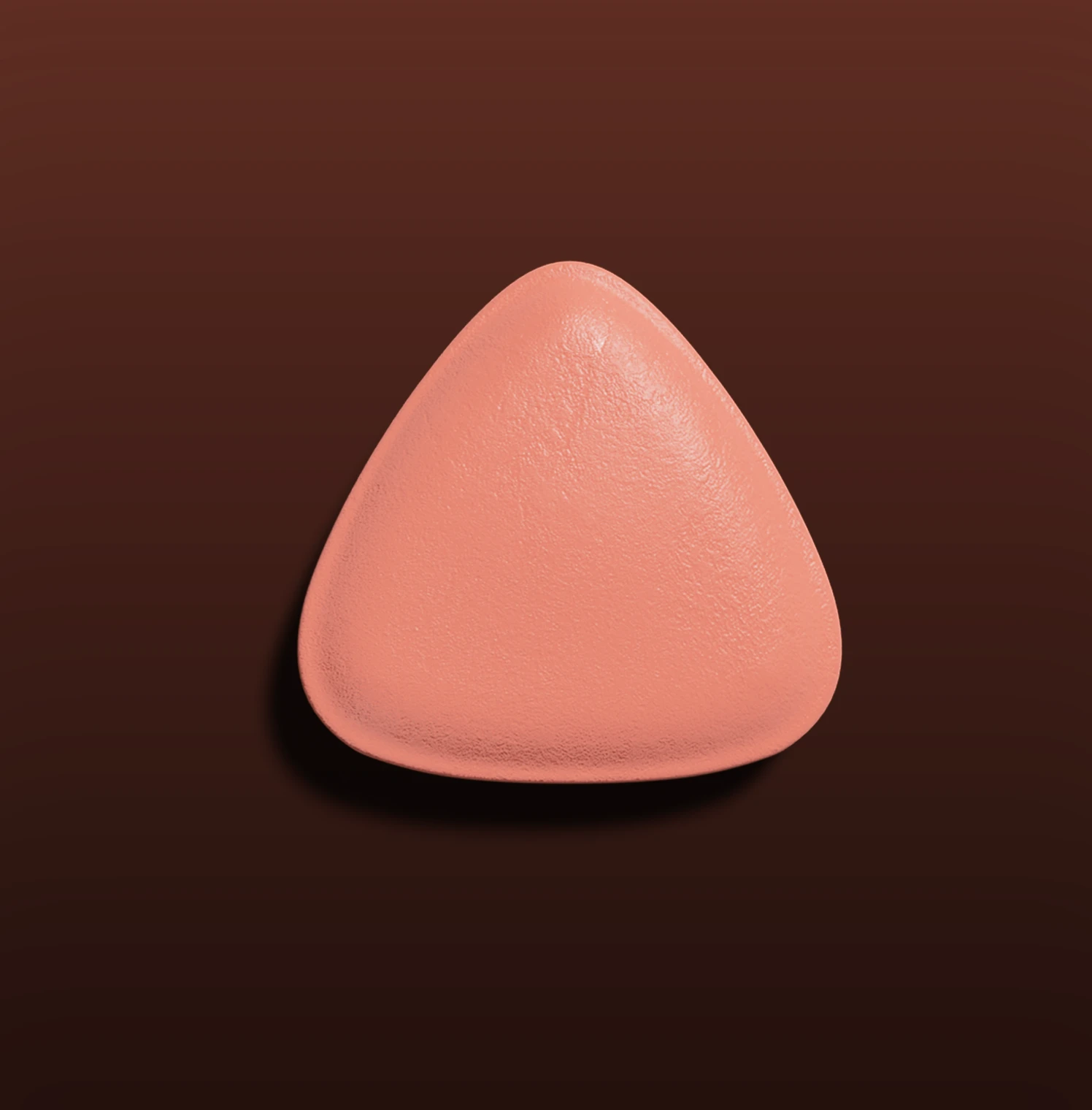Contents
Understanding the Symptoms and Treatment of Anal Herpes
Anal herpes is a common sexually transmitted infection that affects the anal area. It is caused by the herpes simplex virus (HSV), which is the same virus responsible for oral herpes (cold sores).
What is Anal Herpes?
Anal herpes refers to the presence of HSV-1 or HSV-2 in the anal region. HSV-1 is typically associated with oral herpes, while HSV-2 is commonly linked to genital herpes. However, both types of herpes viruses can cause infections in the anal area.
Anal herpes can be transmitted through direct contact with an infected person's skin or bodily fluids. This can occur during sexual activities such as anal sex, oral-genital contact, or even through kissing if there is an active outbreak or viral shedding.
The Role of the Herpes Simplex Virus
The herpes simplex virus enters the body through small breaks or tears in the skin or mucous membranes. Once inside, it travels to nerve cells near the spine and establishes a lifelong infection. The virus can remain dormant for extended periods but may reactivate and cause outbreaks from time to time.
How Anal Herpes is Transmitted
Anal herpes is primarily transmitted through sexual contact, including vaginal, anal, and oral-genital contact. It can also be transmitted by sharing sex toys or through skin-to-skin contact during intimate activities.
It's important to note that anal herpes can be transmitted even when there are no visible symptoms or sores present. This is known as asymptomatic viral shedding, and it increases the risk of transmission.
When it comes to managing anal herpes, antiviral medications can help reduce the frequency and severity of outbreaks. These medications can also lower the risk of transmitting the virus to sexual partners. Additionally, practicing safe sex, using condoms consistently and correctly, and avoiding sexual activity during outbreaks can help reduce the spread of anal herpes.
Symptoms of Anal Herpes
Individuals with anal herpes may experience symptoms such as itching, pain, and sores in the anal area. These symptoms can be accompanied by flu-like symptoms such as fever, body aches, and swollen lymph nodes. In some cases, anal herpes can also lead to complications such as anal fissures or bacterial infections.
It is essential for individuals experiencing symptoms of anal herpes to seek medical attention for proper diagnosis and treatment. Healthcare providers can perform tests to confirm the presence of the herpes virus and recommend appropriate management strategies.
Recognizing the Symptoms of Anal Herpes
Understanding the symptoms of anal herpes is crucial for early detection and appropriate management. Anal herpes is a sexually transmitted infection caused by the herpes simplex virus (HSV). It can be transmitted through anal, vaginal, or oral sex with an infected individual.
Early detection of anal herpes is essential for prompt treatment and to prevent the spread of the virus to others. Being aware of the signs and symptoms can help individuals seek medical attention and receive appropriate care.
Early Signs and Symptoms
The initial symptoms of anal herpes may include itching, tingling, or a burning sensation around the anus. This stage is known as the prodrome and often occurs a few days before the appearance of visible sores. The prodromal phase is characterized by nerve pain and discomfort in the affected area.
Some individuals may also experience flu-like symptoms, such as fever, headache, muscle aches, and swollen lymph nodes. These systemic symptoms generally subside within a week. It is important to note that not everyone infected with HSV will experience these symptoms, and some individuals may have asymptomatic infections.
Symptoms During an Outbreak
During an outbreak, anal herpes can cause the development of one or more painful blisters or ulcers around the anus. These lesions are filled with clear fluid and may rupture, forming crusts as they heal. The skin around the blisters may appear red and inflamed, and the area can be tender to the touch.
Other symptoms that may occur during an outbreak include pain or discomfort during bowel movements, difficulty urinating, and general malaise. The severity and duration of outbreaks can vary among individuals, with some experiencing frequent recurrences and others having long periods of remission between episodes.
Complications of Anal Herpes
Untreated or poorly managed anal herpes can lead to various complications, both physical and psychological.
It is crucial to understand that anal herpes is not just a localized infection; it can have far-reaching effects on the overall health and well-being of an individual. Beyond the immediate discomfort of the sores, there are potential long-term consequences that must be considered.
Potential Health Risks
One of the potential health risks associated with anal herpes is the increased vulnerability to other sexually transmitted infections (STIs) such as HIV. The presence of anal herpes sores can provide entry points for other infections.
In addition to the risk of other STIs, untreated anal herpes can also lead to complications such as viral shedding, where the virus is actively replicating and can be transmitted to sexual partners even in the absence of visible sores. This underscores the importance of early detection and appropriate management of anal herpes.
In some cases, anal herpes can cause proctitis, which is inflammation of the lining of the rectum. This can lead to symptoms such as rectal pain, discharge, and bleeding. It is essential to seek medical attention if any of these symptoms occur, as untreated proctitis can result in further complications and discomfort.
Psychological Impact
Anal herpes can also have a significant psychological impact on affected individuals. The stigma surrounding herpes infections can result in feelings of shame, guilt, and anxiety. It is important to seek support and counseling to address these emotional concerns.
Furthermore, the psychological impact of anal herpes can extend to interpersonal relationships and sexual health. Disclosure of the infection to sexual partners can be a source of stress and anxiety, and navigating these conversations requires open communication and understanding from both parties involved.
Diagnostic Procedures for Anal Herpes
Proper diagnosis of anal herpes involves a combination of physical examination and laboratory tests.
When it comes to physical examination, a healthcare provider will meticulously inspect the anal area for any signs of blisters, ulcers, or other skin abnormalities. This detailed examination is crucial in determining the extent and severity of the infection. In some cases, the healthcare provider may also perform a digital rectal examination to further assess the condition and rule out any other potential issues.
Physical Examination
A healthcare provider will visually inspect the anal area for any signs of blisters, ulcers, or other skin abnormalities. They may also perform a digital rectal examination to assess the extent of the infection.
Furthermore, laboratory tests play a vital role in confirming a diagnosis of anal herpes. Techniques such as viral culture or polymerase chain reaction (PCR) can be utilized to identify the presence of the herpes simplex virus in a lesion or to detect viral shedding. These tests provide valuable information that aids in accurate diagnosis and treatment planning.
Laboratory Tests
Laboratory tests, such as viral culture or polymerase chain reaction (PCR), can be used to confirm the presence of the herpes simplex virus in a lesion or to detect viral shedding.
Moreover, a blood test can be conducted to determine the presence of herpes antibodies in the bloodstream. The presence of these antibodies can indicate a previous or ongoing herpes infection, providing additional insight for healthcare providers in managing the condition effectively.
Treatment Options for Anal Herpes
While there is no cure for herpes, various treatment options can help manage symptoms and reduce the frequency and severity of outbreaks.
Living with anal herpes can be challenging, but with the right approach, individuals can effectively manage the condition and lead a fulfilling life. In addition to medical interventions, adopting a healthy lifestyle can play a crucial role in managing anal herpes. This includes maintaining a balanced diet, staying hydrated, getting regular exercise, and managing stress levels.
Antiviral Medications
Antiviral medications, such as acyclovir, valacyclovir, or famciclovir, can be prescribed to suppress the herpes virus and decrease the duration and intensity of outbreaks. These medications can also reduce the risk of transmission.
It is important to follow the prescribed dosage and duration of antiviral medications to maximize their effectiveness. In some cases, healthcare providers may recommend long-term suppressive therapy to prevent recurrent outbreaks.
Home Remedies and Lifestyle Changes
Complementing antiviral therapy, several home remedies and lifestyle changes can help alleviate symptoms and promote healing. These include maintaining good hygiene, keeping the affected area clean and dry, avoiding irritants, and wearing loose-fitting clothing.
Applying topical treatments, such as petroleum jelly or lidocaine, can provide temporary relief from discomfort. Taking over-the-counter pain relievers can also help manage pain and reduce inflammation.
It is important to consult with a healthcare professional for an accurate diagnosis and appropriate treatment plan. They can provide guidance tailored to individual needs and help minimize the impact of anal herpes on overall well-being.




